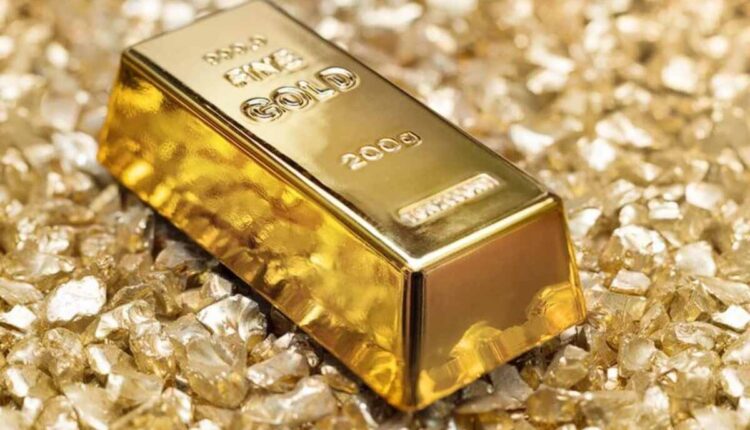History of gold as a means of payment
From ancient civilizations to the modern era, gold has held a special place in human history as a means of exchange and a symbol of wealth. It’s allure and intrinsic value have captivated people across cultures and continents, making it a fascinating subject to explore. In this comprehensive article, we delve into the rich and enthralling history of gold as a form of payment, tracing its journey through time and shedding light on its enduring significance.
The Birth of a Precious Medium of Exchange
In the annals of human civilization, the emergence of gold as a medium of exchange marks a significant milestone. Its unique properties, such as scarcity, divisibility, and durability, made it an ideal candidate for facilitating trade and commerce. Early civilizations, including the Mesopotamians, Egyptians, and Greeks, recognized the inherent value of this precious metal and embraced it as a trusted form of payment.
Gold in the Ancient World
During the ancient period, gold was pivotal in shaping economies and establishing trade networks. From the opulent treasures of ancient Egypt, where pharaohs were buried with gold to accompany them in the afterlife, to the prosperous trading routes of the Silk Road, where gold coins facilitated commerce between diverse cultures, the allure of gold transcended borders and connected civilizations.
Gold Standards and Monetary Systems
As societies evolved, so did the methods of organizing and regulating their economies. The adoption of gold standards and the establishment of monetary systems marked significant turning points in the history of gold as a payment medium. Countries like Great Britain and the United States implemented gold standards, tying their currencies to a fixed value of gold. This system instilled confidence in the stability and importance of these currencies, fostering trust in their economies.
The California Gold Rush and the Shaping of Nations
The mid-19th century witnessed a pivotal event that forever altered the course of history: the California Gold Rush. As news of gold discoveries spread like wildfire, droves of fortune seekers descended upon the American West in search of the coveted metal. The gold rush had far-reaching implications, spurring economic growth, migration, and the establishment of new settlements. It also fueled the expansion of the United States, as the lure of gold brought people from far and wide to the golden shores of California.
The Modern Era: Gold as an Investment
While the use of gold as a primary payment has diminished in the modern era, its role as a store of value and a hedge against economic uncertainty has persisted. Investors turn to gold during financial turbulence, viewing it as a haven asset that retains its worth even in turbulent markets. The advent of financial instruments such as gold-backed exchange-traded funds (ETFs) and futures contracts has made investing in gold more accessible and convenient for individuals and institutions alike.
Pawnshops – Specialized Centers of Retail Gold Trade
Within the realm of gold as a means of payment, pawnshops have emerged as specialized centers of retail gold trade. These establishments offer a unique avenue for individuals to access immediate funds by leveraging their gold possessions. Pawnshops serve as intermediaries, providing short-term loans in exchange for gold items that act as collateral. This symbiotic relationship allows individuals to unlock the value of their gold assets while allowing others to acquire gold jewelry, coins, or bullion at more affordable prices. Pawnshops have become vital components of local economies, fostering a vibrant marketplace for gold exchange and financial transactions.
The Symbolic and Cultural Significance of Gold
Beyond its practical applications, gold holds deep symbolic and cultural significance in various societies. It has been associated with wealth, power, and prestige throughout history. From the golden crowns adorning monarchs to the gleaming jewelry adorning celebratory occasions, gold has become synonymous with luxury and prosperity. Its enduring allure continues to captivate our imaginations and find its place in art, literature, and popular culture.
The Future of Gold in a Digital Age
As we navigate the digital age, the role of gold as a means of payment is undergoing a transformative shift. Cryptocurrencies, such as Bitcoin, have emerged as alternative forms of digital currency, challenging traditional exchange systems. However, gold’s intrinsic value and millennia-long history give it an enduring appeal that cannot be replicated. As technology advances, integrating blockchain and gold-backed cryptocurrencies may bridge the gap between the natural allure of gold and the convenience of digital transactions.
In conclusion, the story of gold as a means of payment is a testament to its enduring allure and significance throughout human history. From its ancient origins to its modern-day role as an investment and store of value, gold has transcended time and cultures, leaving an indelible mark on our collective consciousness. While the finance and payment methods world continues to evolve, the allure of gold remains as steadfast as ever. Its remarkable journey, spanning millennia, reminds us of the universal desire for stability, wealth, and the beauty of this precious metal.
FAQs
How did gold become a form of payment in ancient civilizations?
Gold's unique properties, such as scarcity, divisibility, and durability, made it a desirable medium of exchange in ancient civilizations. Recognizing these qualities, early societies embraced gold as a trusted form of payment.
Is gold still used as a primary form of payment today?
While gold is no longer used as a primary form of payment in most transactions, its role as a store of value and a hedge against economic uncertainty persists. Investors and individuals alike continue to view gold as a safe haven asset.
What is the future of gold in the digital age?
The future of gold in the digital age is evolving with the rise of cryptocurrencies and advancements in technology. The integration of blockchain and gold-backed cryptocurrencies may offer a bridge between the tangible allure of gold and the convenience of digital transactions.
Read Also: Get Help From a Car Locksmith When You’re Locked Out of Your Car

